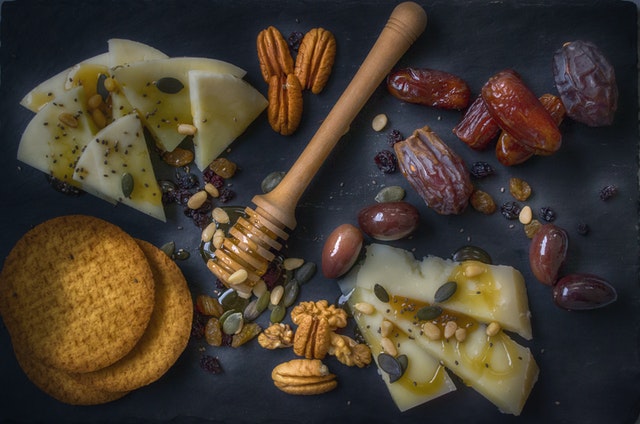Kalamata olives are dark purple and come from southern Greece. You can buy these olives at almost any supermarket. Usually they are used for wine vinegar or olive oil. You can pickle the olives to create the olive oil. Besides Greece, there are few countries that grow this olive variety. Some European states still have a local grower who can make them. But mainly this product continues to come from Greece. When you are going to pickle olives you do need to have the time. This process takes several weeks to several months on average.
Pickling Kalamata olives
You have 2 methods by which you can pickle Kalamata olives. The quickest method is to pack them in the black brine. You do need to change this every day. You could also put them in water for 1 week. Use 500 grams of salt per kilogram of olives and add 10 liters of water per kilogram of salt. After this you can cut the Kalamata olives and pickle them with wine vinegar and slices of lemon.
Buy olives
But you can also buy ready-made olives at the store. In the long method, they lie in stronger brine for up to 3 months. In this process, they acquire a slightly bitter taste which people usually find more pleasing. If you want to make flavors like you know them from the store then you will have to produce big. In fact, the process then takes about 6 months to properly soak in and flavor.
Why olives are healthy
Kalamata olives are one of the healthiest products you can eat. An olive consists of 70% monounsaturated fatty acids. They also have a high content of vitamin E which you find in very few products. This allows skincare products to soak into your skin properly. The unsaturated fatty acids of Kalamata olives, on the other hand, provide good LDL cholesterol levels. This way, the bad fatty acids are removed from your body as quickly as possible. And reduce your risk of cardiovascular disease. So it’s time to go buy a jar of olives.
Fresh olives how long does it take before you can eat them?
You can’t eat the fresh Kalamata olives directly. In fact, they must first be pickled in a salt bath for 6 months to get that nice slightly bitter taste. When they arrive in the Netherlands or another country, you can still transform them into a tasty product such as olive oil yourself. You do this with slicing and pickling olives but you should also add some lemon for contrast. You can find ready-made olives in most supermarkets. Buying olives is done according to your tastes, and trying something once in a while can’t hurt.
Detoxing with Kalamata olives
If you want to detox then Kalamata olives lend themselves well to this. Besides being good for your cholesterol, they also have a positive effect on cardiovascular disease. There are also increasing signs of a positive impact on people with chronic diseases such as diabetes and Alzheimer’s disease. There are even scientists who claim that 50ml of olive oil is equivalent to 10% of an adult dose of ibuprofen but completely natural based.
In fact, studies have shown that even a stroke can be prevented by eating olives or olive oil regularly. Thus, the risk of serious diseases is reduced. It’s time to buy olives!
Pickling your own Kalamata olives
You can pickle Kalamata olives in a variety of ways. If you choose to pickle olives, it is important that you have a lot of patience. You will need to be able to leave the olives for at least 7 days when wet pickling. This is the reason people prefer to buy olives rather than make them. If you like a bitter taste you can make them in with salt. For every kilogram of olives, use 500 grams of salt. If so, leave them for a minimum of 2 weeks and allow the juices to drain out. It is best to do this in a container with holes. If you are satisfied with the taste you can rinse with fresh water and leave in the water for 2 days. Do change the water every day. The longer you let the Kalamata olives ripen the more the flavor comes into its own.

